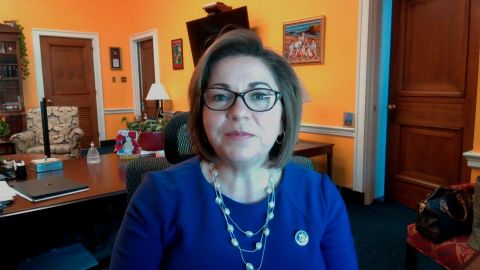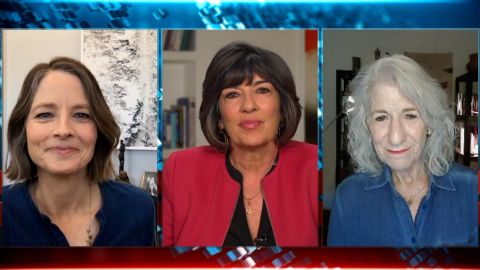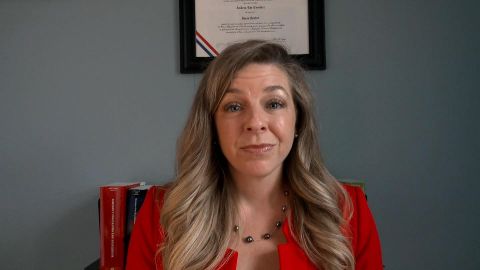Read Transcript EXPAND
JODIE FOSTER, ACTRESS: Yes, very lucky to meet the actual Mohamedou. And we marveled that he could have gone through so much, lived through so much, so much damage and torture psychologically, sexually, just in every aspect of his life, and yet to emerge as such a full human and such a gentle, sweet, affectionate, funny, teasing guy. He did come to Cape Town, where we were shooting. He was — it’s the only visa that he’s ever been able to get. The U.S. government has kept him from having visas to leave anywhere. And he got to hang out with Nancy. And they got to see the penguins and visit Robben Island and all sorts of things in Cape Town.
(LAUGHTER)
FOSTER: And it was really wonderful. It’s felt very healing. It feels to me like it’s very healing for Mohamedou to see that the movie is made and that people have received it.
AMANPOUR: Wow, Robben Island, of course, the prison where Nelson Mandela was for most of his 28-year incarceration. That must have been pretty amazing. Let me talk to you about you, you two, the way you have teamed up. Jodie, what was it? I know that Nancy wrote an op-ed about why she defends even terrorists. And you — that meant a lot to you, even before this film was a reality.
FOSTER: Yes, so Nancy is really quite a hero. She believes in the rule of law, believes in the Constitution. And she believes that everybody deserves a defense. And it’s been her mission to provide that. And that means challenging governments and challenging authority. And I think that that’s — I think that, as noble a mission as that is and how important a mission as that is, I think it takes a toll on somebody. And she’s given so much, so that we can have a just system.
AMANPOUR: Nancy Hollander, you did write this article In “The New York Times,” an op-ed, because you needed to say something about a lot of the criticism maybe that you were getting for all the different kinds of defendants who you were representing. Talk to us about what you experienced and why you wrote this.
NANCY HOLLANDER, ATTORNEY FOR MOHAMEDOU OULD SALAHI: At that time I wrote that, I think it was Cheney who said that we shouldn’t be representing these people. And there were some other people who have always said, you shouldn’t represent these terrorists. And it just made me so angry. And, as Jodie as me says in the movie, which is what I wrote, nobody ever complained when I represented people who did horrible things, murders, raping babies. Nobody ever accused me of being them. And yet we were being accused, the lawyers who represented people in Guantanamo, of somehow being like them. And it infuriated me. And I think that piece was some of my best writing, actually, because I was so angry when I sat down and wrote it.
About This Episode EXPAND
Rep. Linda Sanchez (D-CA) discusses the new immigration bill she introduced last week. Attorney Andrea Martinez reveals the human stories behind the numbers of immigration. Actress Jodie Foster and criminal defense attorney discuss the new film “The Mauritanian.” Sociologist and “Halfway Home” author Reuben Miller exposes the realities of life after mass incarceration.
LEARN MORE



